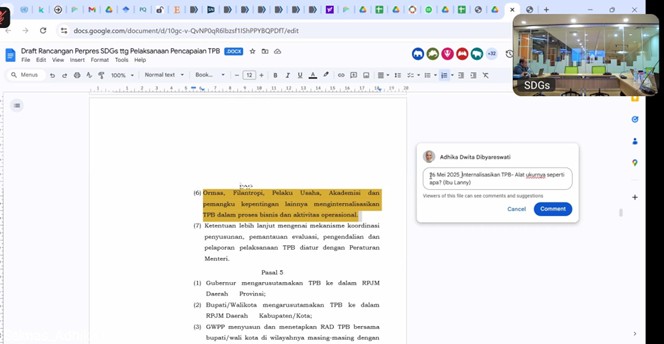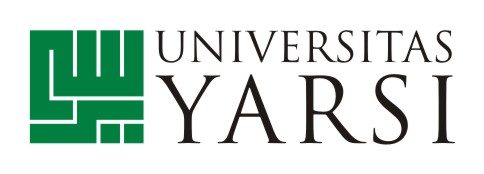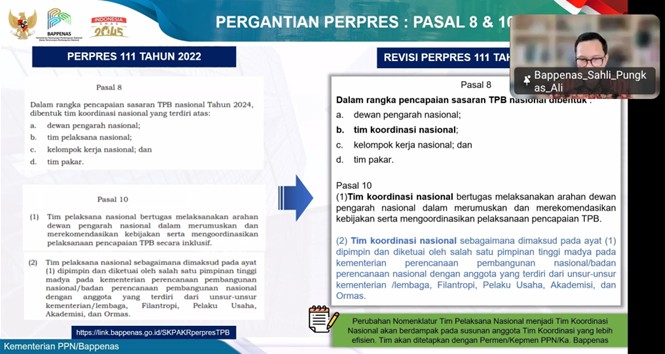Jakarta, 26 May 2025 – The National Secretariat for SDGs, Ministry of National Development Planning/Bappenas held an online Public Consultation Meeting to gather input in the finalisation stage of the Draft Presidential Regulation on the Implementation of Achieving Sustainable Development Goals (SDGs) which will replace Presidential Regulation No. 111 of 2022.
The activity, which took place at 13.30-15.30 WIB through the Zoom platform, was attended by various stakeholders from the government, academia, business world, civil society organisations, media, as well as national and international philanthropic institutions. Also present were SDGs Centres from various universities in Indonesia, including YARSI University.
The agenda began with a presentation from the Expert Staff for Social Affairs and Poverty Reduction, who also serves as the Head of the SDGs National Secretariat. He explained the main framework of changes in the draft Perpres, which is designed to strengthen governance, monitoring mechanisms, and ensure the sustainability of cross-sector and cross-actor programmes.
The session continued with an interactive discussion guided by the SDGs National Secretariat’s Social Development Pillar Manager, where participants were given space to submit responses, questions, and suggestions for improvements to the draft regulation.

This activity directly contributes to the achievement of several points in the Sustainable Development Goals, including:
- SDG 16 – Peace, Justice and Resilient Institutions, through strengthening transparent, inclusive and accountable governance in policy formulation.
- SDG 17 – Partnerships to Achieve Goals, by involving various parties from the government, private sector, academia, to civil society in a strategic dialogue space.
- SDG 10 – Reducing Inequality, through the involvement of vulnerable groups and grassroots in public decision-making processes.
By holding this public consultation, the government shows its commitment to make the policy formulation process an open, reflective and collaborative dialogue space. This effort not only aims to address national development needs, but also to ensure alignment with the global sustainable development agenda.


